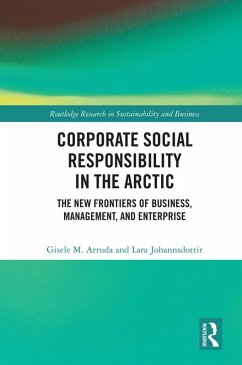
Corporate Social Responsibility in Supply Chains (eBook, PDF)
Sofort per Download lieferbar
Statt: 18,95 €**
15,99 €
inkl. MwSt. und vom Verlag festgesetzt.
**Preis der gedruckten Ausgabe (Broschiertes Buch)
Alle Infos zum eBook verschenkenWeitere Ausgaben:

PAYBACK Punkte
0 °P sammeln!
Seminar paper from the year 2013 in the subject Business economics - Business Ethics, Corporate Ethics, grade: 1,7, The FOM University of Applied Sciences, Hamburg, language: English, abstract: Corporate social responsibility (CSR) has become an important and much discussed topic of the 21st century, both in academic research and public media. Corporate leaders increasingly realize that their responsibilities are not limited to shareholders, but extend to the communities in which their companies operate. Exercising this responsibility, particularly concerning social and environmental issues, h...
Seminar paper from the year 2013 in the subject Business economics - Business Ethics, Corporate Ethics, grade: 1,7, The FOM University of Applied Sciences, Hamburg, language: English, abstract: Corporate social responsibility (CSR) has become an important and much discussed topic of the 21st century, both in academic research and public media. Corporate leaders increasingly realize that their responsibilities are not limited to shareholders, but extend to the communities in which their companies operate. Exercising this responsibility, particularly concerning social and environmental issues, has consequently become more crucial to many companies. However, this has brought new reporting challenges because the successes of CSR are often difficult to quantify. Companies have to account for the social and environmental consequences of their activities. CSR has emerged as an inescapable priority for business leaders in every country because many organizations rank companies on the performance of their CSR and these rankings attract considerable publicity. An example of the rising influence of social issues on economic performance is the consumer boycott of Nike products in the early 1990s after the New York Times and other media outlets reported abusive labor practices at some of its Indonesian suppliers. This behavior of consumers demonstrates how intense economic consequences of social issues could be, even if those corporations actually have had little impact on the problem at hand.
Dieser Download kann aus rechtlichen Gründen nur mit Rechnungsadresse in A, B, BG, CY, CZ, D, DK, EW, E, FIN, F, GR, HR, H, IRL, I, LT, L, LR, M, NL, PL, P, R, S, SLO, SK ausgeliefert werden.













